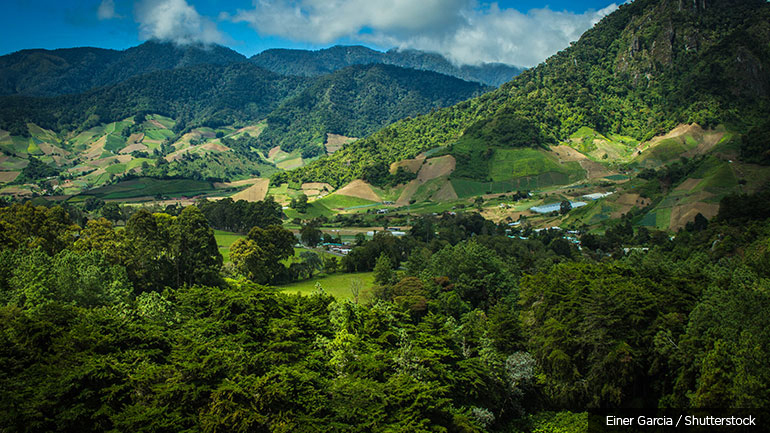
Panama has one of the highest percentages of forest cover in the world, with forests covering 65 percent of its landscape. However, tensions over land use have led to deforestation and biodiversity loss, especially in its poorest areas where subsistence agriculture is the dominant way of life. In Panama, Indigenous communities in rural areas, such as the Comarca Emberá Wounaan and Comarca Guna Yala, are some of the most disadvantaged groups. Yet, they maintain some of the country's densest and most mature forests. Panama needs to improve the efficiency of production systems and mitigate against climate vulnerability to boost food security and income for its most vulnerable people.
PROGREEN engagement in Panama supports resilient, inclusive, sustainable, and efficient socio-economic development through rural jobs and livelihoods. The project seeks to support the Government of Panama in strengthening its capacity to identify and develop policies and innovative financing instruments to diversify employment opportunities in key value chains. Opportunities to actively engage rural communities in ecosystem services restoration, sustainable landscape management, and low-carbon development will contribute to reducing socio-economic disparities between rural and urban populations and pressure on natural capital.
PROGREEN supported the Government of Panama to increase its capacity to design integrated landscape management programs and policies that will help support rural livelihoods. Tools and knowledge products used to assess Payment for Ecosystem Services programs and green financing mechanisms supported the development of innovative policy and financial instruments.